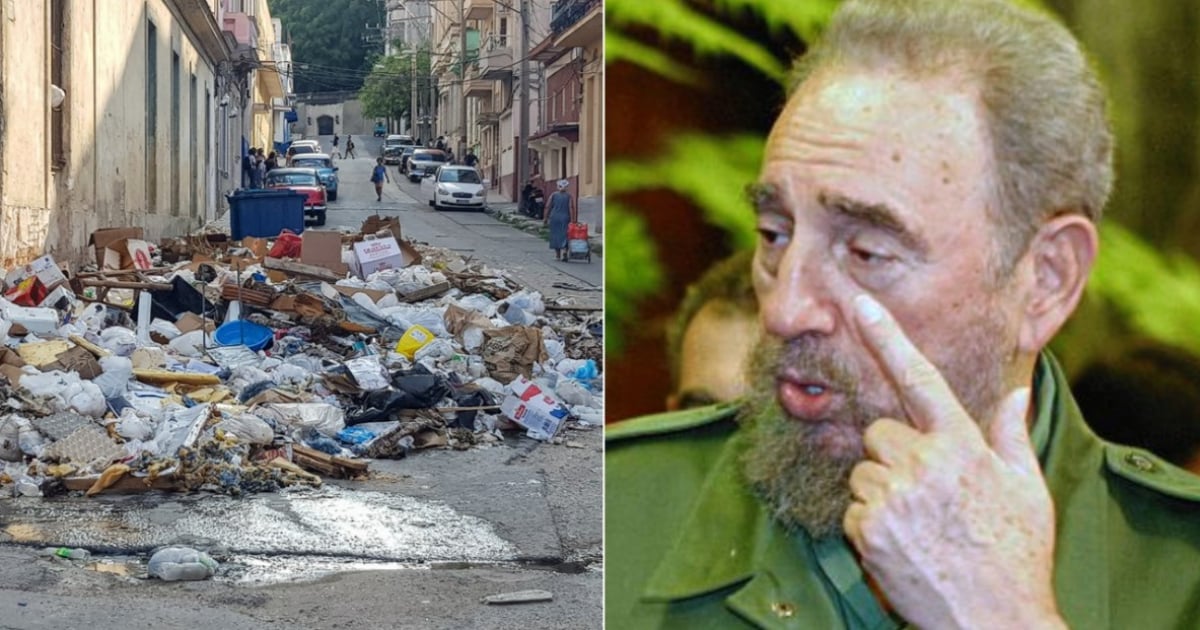
In Cuba, it is enough to turn on the television for an hour to receive a message that, according to the leaders, seeks to calm the concerns of the population and convince them that, eventually, everything will be resolved. The official narrative is presented as an attempt to provide security amid chaos, assuring that there is "availability of fuel" and that the electrical system is being restored, although not to full capacity. The promise is repeated that "soon everything will be interconnected," as if that simple statement were enough to ease daily anxieties. However, behind that false sense of hope lies the harsh reality: even at full capacity, the system will not be able to meet the entire demand, and blackouts will continue to be a constant in the near future. In the face of these situations, Cubans live in a constant state of uncertainty and anguish, a feeling that, as many express, "marks day-to-day life" and becomes a collective suffering.
The Cuban Revolution has been able to manipulate this trauma to perpetuate a state of dependence and resignation in the population. With a mastery of energy language —which adds to the weather culture imposed by years of hurricanes and cyclones— Cubans have become experts in terms like “Turkish barges,” “bunkers with fuel oil,” “generating sets,” “national electrical system,” “distributed and floating generation,” and “connected microsystems.” They know the names of all the thermal power plants in the country and can recognize by sound the severity of the outage at the moment the power goes out: "the power's out," "a transformer exploded," "this one is going to be a long one." This knowledge does not stem from technocracy, but from forced repetition and the need to survive in a country where the language of scarcity and crisis has become part of national identity.
Despite this, the regime continues to promote blind faith that, eventually, everything will turn out fine. Cubans are assured that, although there is not enough food, "bread is guaranteed." However, on the streets of Havana and other cities, neighbors report seeing people picking up spoiled food from the garbage, a result of the lack of refrigeration. “I boil this and add lemon and prepare it because I haven't eaten anything for days,” comments one of those affected, illustrating the desperation and the need for adaptation that many face, but also a new normality.
The government has used trauma psychology to subjugate the people, exploiting the discourse of "blockade" as a mantra that deflects all internal responsibility. By always blaming external factors, it evades critical analysis of its own failures. This manipulation strategy, based on fueling despair and offering empty promises, keeps the population in a state of learned helplessness, where the cycle of crises and superficial solutions repeats, maintaining control and avoiding any deep questioning about the true origins of the problems on the island.
The trauma accumulated from decades of energy crises, lack of food, and precarious living conditions has been instrumentalized by the regime to create a narrative in which Cubans are victims of an external enemy, but also heroes of an endless resistance. This duality feeds a sense of purpose and belonging that, while strengthening the spirit, hinders real change and perpetuates control over a people who, generation after generation, have learned to live with trauma as their only constant.
What do you think?
COMMENTFiled under:
Opinion article: The statements and opinions expressed in this article are solely the responsibility of the author and do not necessarily represent the viewpoint of CiberCuba.